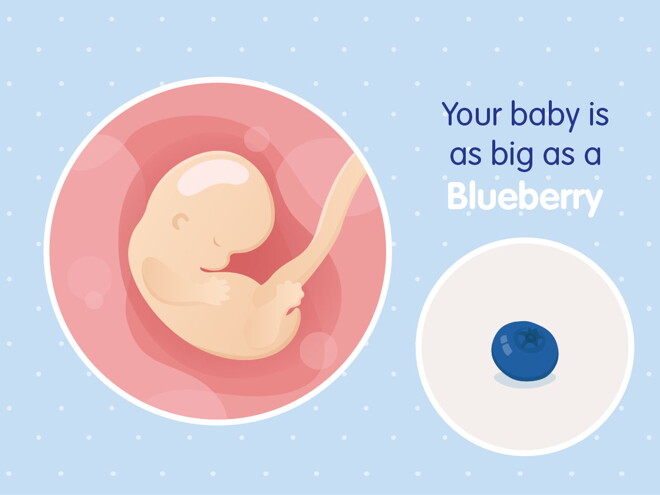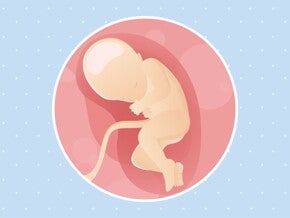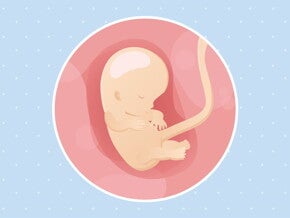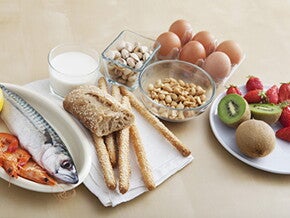
7-week pregnant: baby development and diet tips
BABY DEVELOPMENT
With her first muscles in place, your baby is moving a little, albeit involuntarily. Legs and arms are growing, elbows are forming and her toes and fingers are beginning to look like ‘real’ toes and fingers. All the visual equipment is coming along nicely, too. Lots of little changes this week!
YOUR BODY
At 7 weeks pregnant, a craving for pickles is more than just a pregnancy cliché. Things you loved pre-pregnancy may turn you off now. Even your favourite perfume may now make you cringe. Your habits might change because your altered hormone levels have an effect on your sense of smell and taste. Your new cravings may even include gherkins. Unfortunately, you may also experience the exact opposite of cravings. At 7 weeks pregnant, many mums-to-be have a lot of trouble with nausea, especially early in the morning.
NUTRITION
Your body, under the influence of natural hormones, is already thinking ahead. At 7 weeks pregnant, it needs to store some fat tissue to begin preparing for the final months of pregnancy and, after that, breastfeeding. During your first trimester, if you began your pregnancy at a healthy weight, you likely do not need to eat any more calories. However, be sure to include foods from each of the food groups, and talk with your doctor about a multi-vitamin and mineral supplement designed for pregnant women.
TIPS
Noticed any strong food aversions lately? Totally normal! At 7 weeks pregnant, it is common during pregnancy to have a deep distaste for certain types of food and especially those with strong odours, especially during the first trimester. To work around these food dislikes, simply opt for a ‘similar’ food, i.e. one in the same food group. So if you can no longer stand the sight of fish, eat chicken, or other white meat; or if you can’t manage to eat some vitamin A rich orange or yellow vegetables, remember to compensate by eating more fruits rich in the same nutrient, such as peaches and apricots.


















